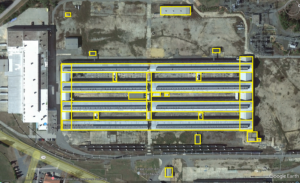Badin Business Park is located on the site of a former aluminum smelter operated by Alcoa Inc. The smelter began operations in 1917, long before anyone understood the potential impact of waste materials and before there were any environmental regulations in place.
Beginning in 1990, Alcoa Inc. began to take action to identify and investigate waste sites in Stanly County related to its operations. A total of 49 potential waste sites were identified and measurable progress has been made in addressing any sites that might pose a health or environmental threat.
Significant steps have been taken to address environmental issues at the former plant site, including the removal and disposal of 725+ tons of contaminated soils, asbestos and other materials; the installation of new liners, soil covers and caps; the relocation, repair and replacement of storm piping and sewer lines; and the closure of permitted facilities.
The majority of environmental issues at the site have been resolved. Remaining issues primarily involve groundwater-related concerns at three areas.
Learn more about our environmental progress and the current status of waste sites.

